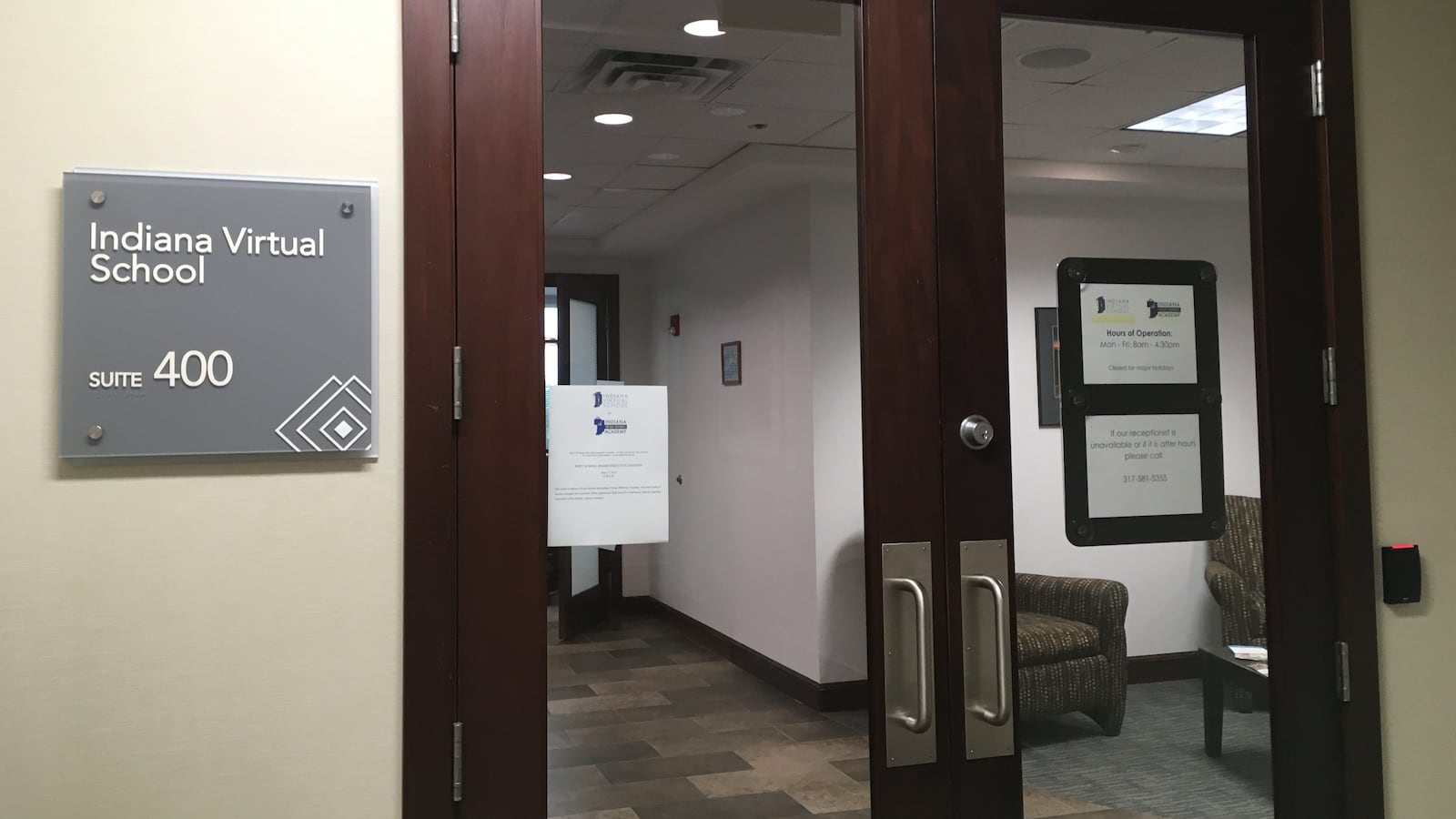Facing a $40 million enrollment scandal at two virtual charter schools, Indiana State Board of Education chairman B.J. Watts had a big question at a meeting Wednesday:
“How did we miss this?”
The question tipped off a round of finger-pointing. The schools’ oversight agency, Daleville Community Schools, bore the brunt of the board’s blame for the online schools’ alleged abuse of millions in public dollars.
But Indiana Virtual School and Indiana Virtual Pathways Academy officials remained quiet. The schools’ superintendent Percy Clark watched the discussion from the audience but offered no public comments and later declined to answer questions from Chalkbeat.
The state education board voted unanimously to try to recover about $40 million in public dollars from the two online schools, after the state examiner found the schools allegedly inflated their enrollments for three years with inactive and out-of-state students — and, in one case, a student who had died.
Indiana Virtual School is already slated to close in September, and Indiana Virtual Pathways Academy will close after the upcoming school year. To claw back the money, the state will likely reduce funding to the schools moving forward and turn to the local prosecutor and state attorney general to consider legal action.
State Examiner Paul Joyce said at the meeting that the schools’ actions could potentially be considered criminal. He couldn’t say whether federal investigators were looking into the case but noted that “in situations like this, we do contact all of our law enforcement partners.”
It’s unclear how Indiana Virtual School and Indiana Virtual Pathways Academy spent some $80 million in public funding from 2016 to 2018 because they have failed to file annual audits.
The state is auditing the schools’ finances, and the full audit is still to come.
Clark has indicated that cutting off state dollars will likely lead to the immediate shutdown of the schools, which have been the subjects of investigations by Chalkbeat.
State board members grilled Daleville Superintendent Paul Garrison on the oversight of the virtual schools and at one point floated the idea of revoking the district’s authority to oversee charter schools. The board estimated that Daleville collected about $2.4 million from the schools in oversight fees over the three-year period.
“Ultimately, the responsibility falls on Daleville, 100%,” Watts told Chalkbeat. “They’re not doing this out of the goodness of their heart. They’re being paid for oversight.”
Watts said the problems should have been caught earlier, by Daleville or by the state department of education.
“Over the three years in question, did Daleville provide any monitoring or oversight of these schools at all?” state board member Tony Walker asked during the meeting.
Garrison defended the district for raising flags earlier this year over potential problems at the schools and working to close them. He said the district could not access until recently the data that showed the schools were counting thousands of students who weren’t active in classes.
Daleville officials have contested that they should not have to return money from the fees they collected when the state seeks to recoup funding from the virtual schools. Taking back money from Daleville would discourage charter oversight agencies from reporting problems, “even despite legal and moral obligations to do so,” Daleville officials wrote in a formal protest.
But board member David Freitas faulted Daleville for drawing up a weak charter contract, allowing Indiana Virtual School to open its sister school in 2017, and not holding the schools accountable.
“You could have done that when you formulated that contract, to not sign off on the contract until you were comfortable that you had the accountability measures to ensure this would not happen,” Freitas told Garrison.
While some board members, including Freitas, considered Indiana Virtual School’s scandal “an anomaly” among charter schools, state schools chief Jennifer McCormick said it proves systemic problems with the state’s oversight of charter schools. A former district superintendent, McCormick said charter schools need more transparency and stricter rules, and she called for the state to scrutinize other virtual charter schools.
This Indiana virtual charter school graduated just 2 percent of its students in 2018

